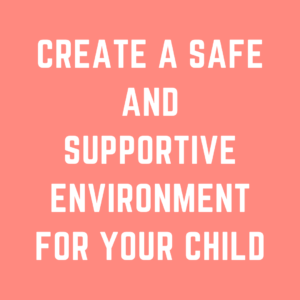Establishing a strong bond with your child is essential for their emotional and social development. A strong parent-child bond can also help your child feel secure, valued, and loved.
In this blog, we’ll explore several ways to establish a strong bond with your child.
- Practice responsive parenting
Responsive parenting is when you tune into your child’s cues and respond to their needs in a timely and appropriate manner.
This can involve simple actions like picking up your baby when they cry, holding and comforting your child when they’re upset, and engaging in play with your child when they’re happy and alert. Responsive parenting helps your child feel understood, supported, and loved.
- Spend quality time with your child
Spending quality time with your child is one of the most important ways to build a strong bond.
Quality time can involve a range of activities, from playing games and reading books to going on walks or doing crafts together.
It’s important to choose activities that your child enjoys and that you can both participate in. Quality time helps your child feel valued and important to you.
- Engage in active listening
Active listening involves paying close attention to your child when they talk to you and responding thoughtfully to what they say.
It’s important to listen without judgment or interruption and to show interest in what your child is saying. Active listening helps your child feel heard and respected, which can strengthen your bond.
- Practice positive reinforcement
Positive reinforcement involves praising and rewarding your child for positive behavior and accomplishments.
This can involve simple actions like saying “good job” when your child completes a task or giving them a hug or a treat when they do well.
Positive reinforcement helps your child feel loved and appreciated, which can strengthen your bond.
- Show physical affection
Physical affection, such as hugs, kisses, and cuddles, is a powerful way to bond with your child. Touch can be calming, soothing, and reassuring, and can help your child feel safe and loved.
It’s important to show physical affection regularly, even as your child grows older.
- Set aside one-on-one time
Setting aside one-on-one time with your child is a great way to strengthen your bond. This can involve taking your child on a special outing or doing a fun activity together.
One-on-one time allows you to focus solely on your child and helps them feel important and valued.
- Create family traditions
Creating family traditions, such as celebrating holidays or having a weekly family game night, can help strengthen your bond with your child.
Traditions create a sense of belonging and stability and provide opportunities for positive family interactions and memories.
- Communicate openly and honestly
Open and honest communication is essential for building a strong bond with your child. It’s important to communicate with your child in a clear, respectful, and age-appropriate manner.
Encourage your child to express their thoughts and feelings, and be open to hearing what they have to say.
- Respect your child’s boundaries
Respecting your child’s boundaries is an important part of building trust and respect. It’s important to listen to your child’s needs and preferences and to respect their physical and emotional boundaries.
This helps your child feel safe and respected, which can strengthen your bond.
- Be a positive role model
Being a positive role model is a powerful way to strengthen your bond with your child. It’s important to model positive behaviors and attitudes, such as kindness, empathy, and respect.
Children learn by example, so being a positive role model can help your child develop into a happy, healthy, and compassionate adult.
Conclusion
Establishing a strong bond with your child takes time, effort, and patience.






